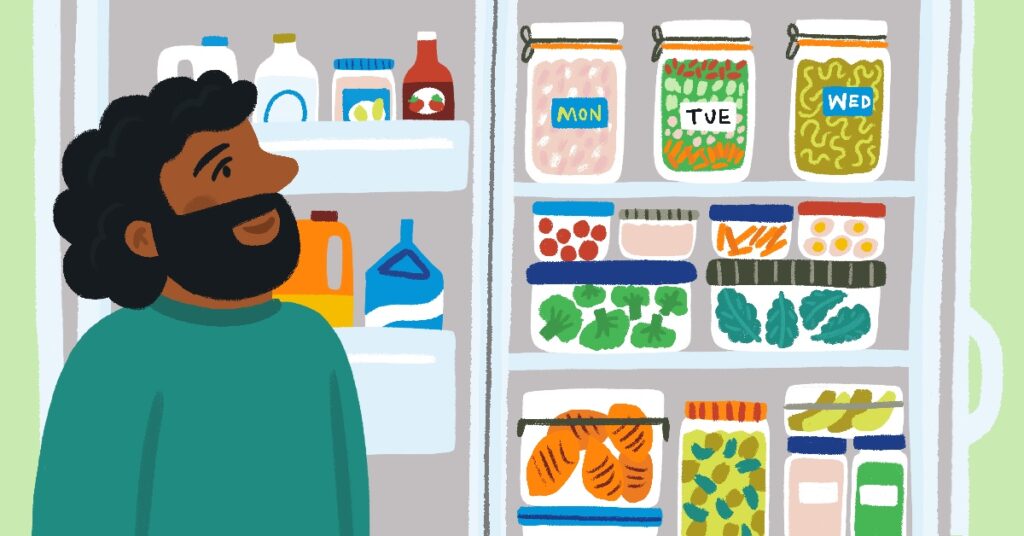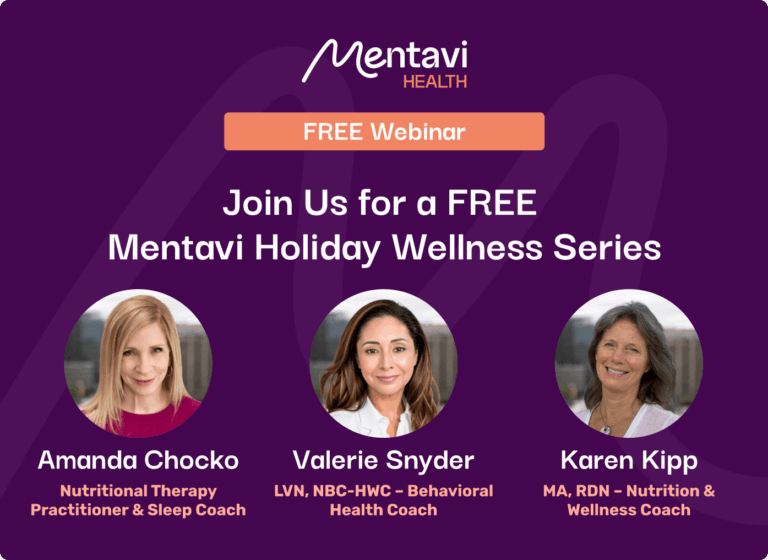
by Dronile Hiraldo
For people with ADHD, it can be difficult to sustain a regular work or study schedule, keep emotions in check and manage day-to-day responsibilities while also making sure you’re eating well. Regular mealtimes and good planning can help. Carving time into our schedules for meal planning can be the difference between a haphazard presentation and a thought-out pitch deck.
The Benefits of Meal Planning
Organization, time management and more focused attention are just a few key benefits of meal planning. Yet, one benefit that is often overlooked is nourishing our body with the nutrients it needs. “Meal planning is a helpful tool for everyone, but especially important for people who are on medications that can decrease appetite,” says integrative medicine specialist Julia Snyder, M.D., who practices in Moorestown, N.J. “Packing a healthy meal and eating by the clock can decrease the likelihood of getting a crash later in the afternoon as the medication wears off.”
Dedicating time in one’s schedule to coming up with meal ideas, cooking and baking can be one way to stimulate the brain and use one’s creativity productively. Shauna Pollard, a doctorate-level psychologist, echoes the impact meal planning can have on individuals with ADHD.
“Having nutritious meals on hand when needed can help [the] tendency to avoid skipping meals, [manage] the impulse to order takeout, pick up fast food, or eat junk food when busy [and] avoid emotional challenges that come with undereating,” she says.
Meal planning can also be a healthy way to mitigate symptoms and build in time for self-care. If you’ve been wondering how to make meal planning work for you, try these five key tips today:
1. Stick To The Basics: Keeping a few key ingredients on hand can both make the meal planning process easier and help to manage ADHD. Snyder suggests individuals stick to a diet high in protein while keeping it light on the sugar and refined grains.
“A general rule of thumb is to eat a rainbow of plants, nuts, seeds and whole grains, with healthy fats like olive oil,” Snyder says. “And avocado and clean animal proteins if preferred — like salmon, chicken, and grass-fed beef. Add in some dark chocolate as a treat.”
She also suggests including key vitamins and minerals like magnesium, iron, zinc, antioxidants, and Omega-3 fatty acids in your diet. “Vitamins and minerals play an important role in brain health and in making neurotransmitters,” Snyder says.
Whole foods like blueberries, rolled oats, pumpkin seeds and eggs can be the foundation for a couple of meals throughout the week, such as a large batch of oatmeal, freshly-baked muffins, or a savory frittata.
2. Schedule Your Meal Planning: Just like any important deadline, scheduling and prioritizing your meal planning is the key. “Meal planning is challenging because it involves so many of the executive functions: planning, organizing, multiple steps, staying focused, time management and managing distractions,” says Pollard. “Make time to come up with a game plan and write it down if you need to. Start with a meal plan strategy that’s not going to overwhelm you.”
3. Create a Menu: Foodies will love this next tip. The next time you’re meal planning, set aside time to create a two- to three-day menu. While a weekly menu is ideal, starting with two to three days allows you to get into the habit of coming up with meal ideas. Start by listing two or three breakfast, lunch and dinner options that you enjoy, are easy to make and you wouldn’t mind repeating a couple of times in the week.
Becca Harris, a registered dietician specializing in ADHD nutrition, suggests an idea that can simplify your meal planning: “Create a list of eight or more of [your] favorite recipes,” she says. When creating a menu of recipes, Harris also suggests keeping it flexible so that there’s room to mix up meals. “It isn’t unusual for someone with ADHD to develop an aversion to their leftovers. Having some frozen or non-perishable backup foods is key. If you sense an aversion coming on, pop your leftovers in the freezer for another day. Some of the best freezable foods include soups, stews, curries, grains like rice or quinoa, animal proteins, stir-fries and baked goods.” This allows you to choose meals that align with what you’re feeling at the moment.
4. Batch Cook Your Meals: Instead of cooking one or two meals at a time, try your hand at doubling a recipe or two to cook for multiple days at a time. Use your handy menu to cook the meals that will either have the most versatility or give you the most amount of servings in the week. As you habitually cook meals, you’ll become familiar with how much time it takes to prepare and the number of servings you’ll get from each one.
5. Keep Meals Visible: Ever cooked your favorite meal to then have it disappear and then reappear in the back of your fridge weeks later? This “out of sight, out of mind” allusion is what specialists call object permanence. Object permanence is the ability to remember a person or object, like a pre-cooked meal, when hidden. After you’ve spent time prepping, cooking and portioning, the last thing you want to do is forget that your favorite meal is eagerly waiting for you to return. Instead of stuffing your meals wherever they can go in the fridge, place them in glass or see through containers where you can easily see them. This will help you extend your meals, keep object permanence at bay, and give you the added benefit of having to worry less about cooking another meal.
“Just like anything else, start small and work towards your goal,” Snyder says.”It doesn’t have to change overnight. Celebrate small successes. Make it fun.”
Books like Dr. Leslie Korn’s “Nutrition Essentials for Mental Health” and “Cookbook for Busy Minds,” from Children and Adults with Attention-Deficit/Hyperactivity Disorder, can be good places to start. As meal planning becomes more familiar, you can extend your planning or cooking. Most importantly, make meal planning a fun part of your day, and remember to think about the benefits it’ll bring to you and your mental health.
Sources:
Nutrition Essentials for Mental Health: A Complete Guide to the Food-Mood Connection by Leslie Korn, PhD
Cookbook for Busy Minds from Children and Adults with Attention-Deficit/Hyperactivity Disorder







